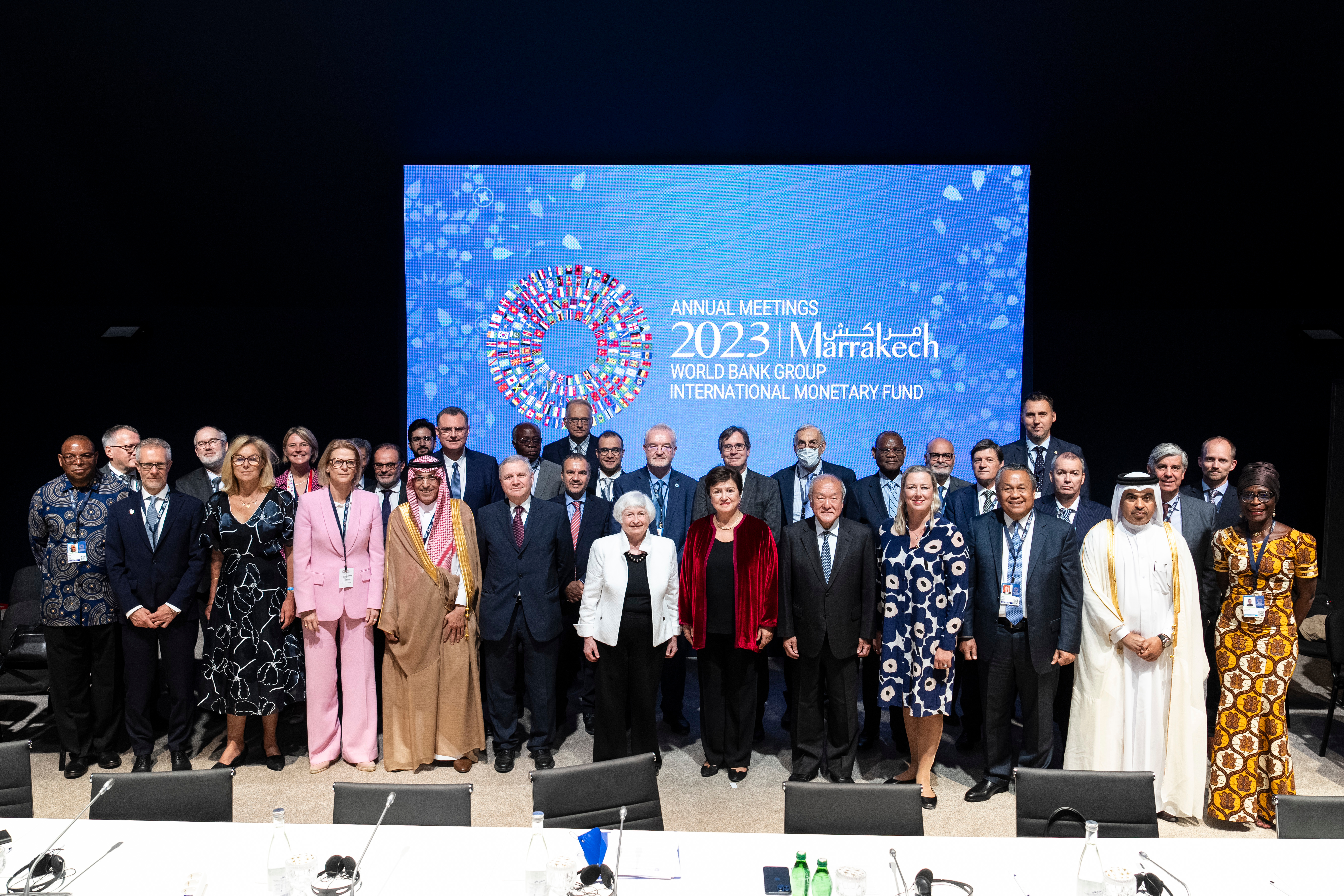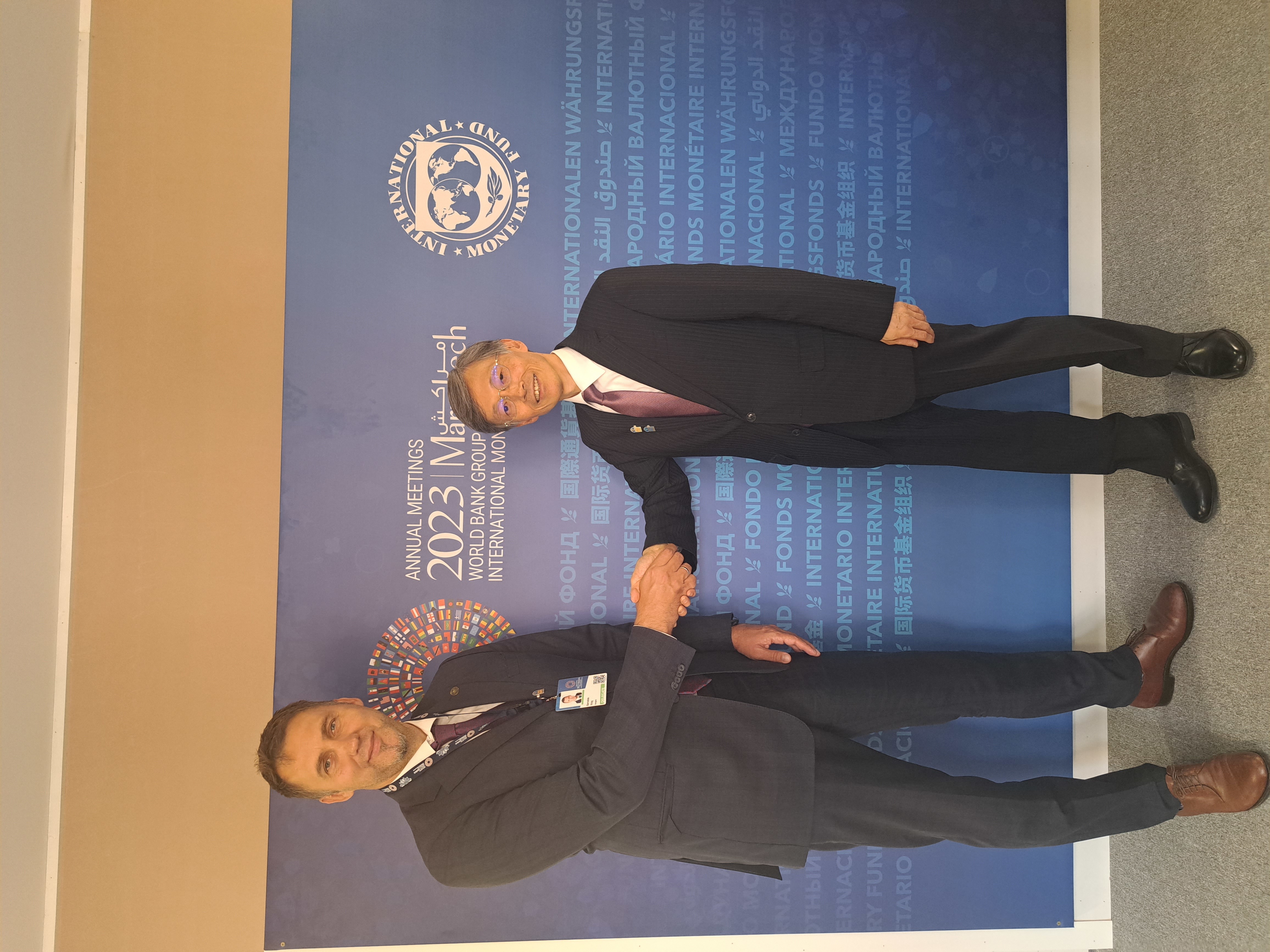The Magyar Nemzeti Bank (MNB), the Central Bank of Hungary pledged nearly 14 million euros to the IMF’s Poverty Reduction and Growth Trust (PRGT) through a targeted investment instrument. The pledge was officially announced earlier this week by Barnabás Virág, Deputy Governor of the MNB on the margins of the Annual Meetings of the World Bank Group (WBG) and the International Monetary Fund (IMF).
The Annual Meetings of the IMF and the WBG took place in Marrakech, Morocco, between 9-15 October 2023, where global poverty eradication was again among the most discussed topics. The IMF finances this goal from its specific financing instrument, the Poverty Reduction and Growth Trust (PRGT), concessional financing (currently at zero interest rates) to low-income developing countries with high-debt ratios. Ensuring adequate funding of the PRGT is a key element on the solidarity-based agenda of the IMF’s Managing Director, Kristalina Georgieva. The Magyar Nemzeti Bank – represented by Barnabás Virág, the Deputy Governor of the MNB – also took part in the Annual Meetings.
The global shocks in recent years have severely affected the developing countries around the world, creating a need for greater financial capacity from the IMF. The Managing Director of the Fund has launched several fund-raising campaigns primarily among countries with strong, stable economic fundamentals. Hungary has also received such a request.
Meeting this request, the MNB – as the primary national authority responsible for tasks related to Hungary’s membership at the IMF – assessed a possible contribution from a legal, liquidity and credit risk point of view. Based on its findings the MNB has decided to pledge 11 million SDRs (Special Drawing Rights) through the return on a specific investment made at the IMF. The pledge of Hungary is considered to be historic not only by domestic standards, but also taking into account that among emerging countries from the European Union, Hungary made the largest pledge during this fund-raising campaign.
The International Monetary Fund, together with the World Bank, plays a significant role in helping low-income countries (LICs), which is reflected in the historic mission of the Bretton Woods institutions to eradicate poverty. This is the first time that Hungary – a previous IMF program country – appears as an investor. The partnership of the country and the IMF have undergone continuous development, of which is an important milestone, that the Hungarian authority provides funds for the IMF’s mission.

